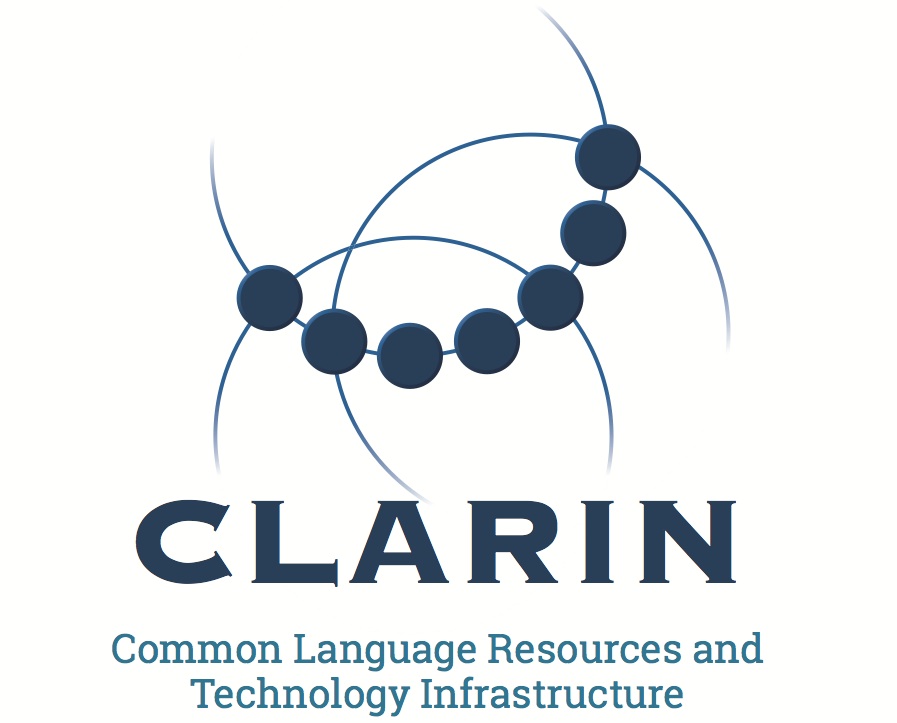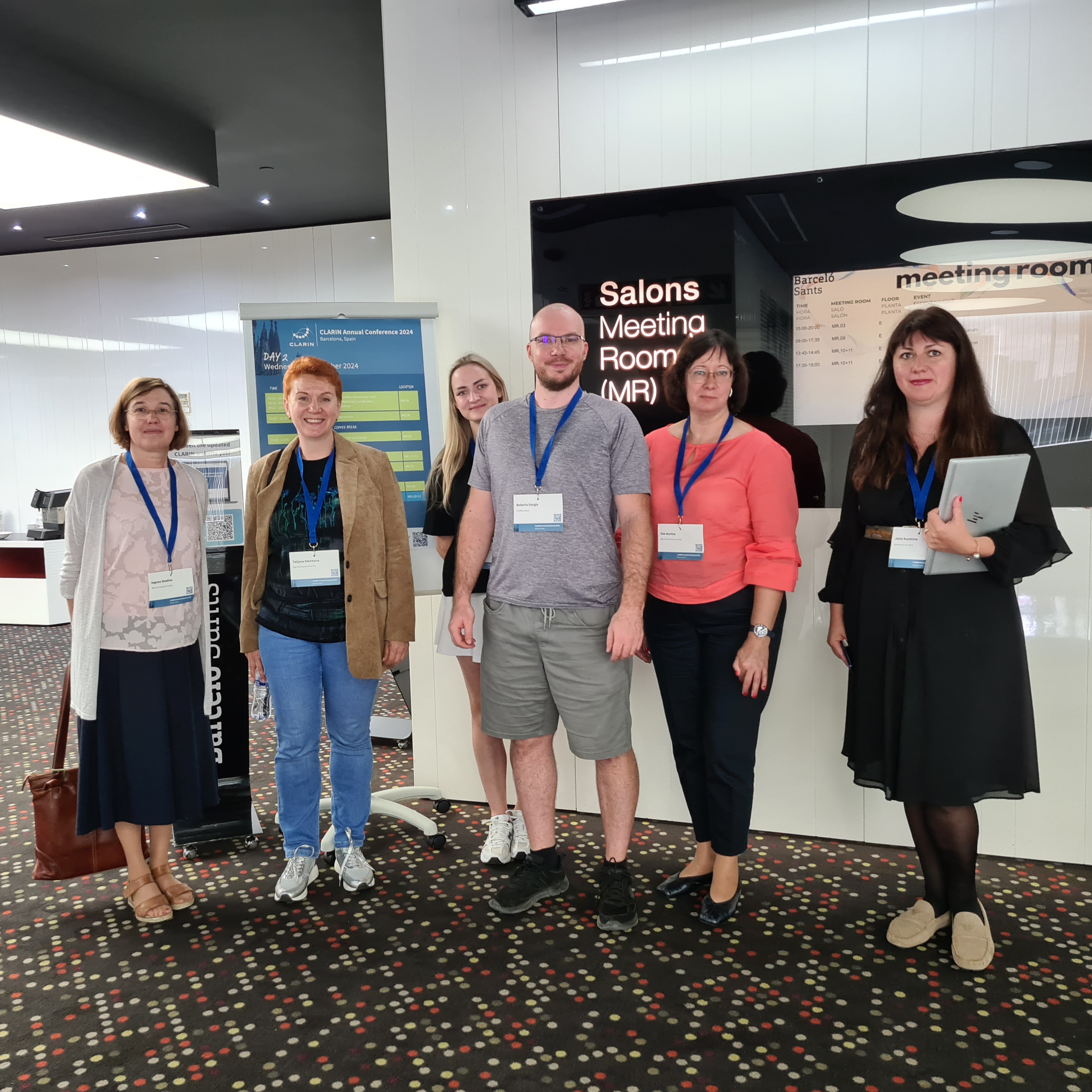CLARIN (Common Language Resources and Technology Infrastructure) is a research infrastructure that was initiated from the vision that all digital language resources and tools from all over Europe and beyond are accessible through a single sign-on online environment for the support of researchers in the humanities and social sciences. 
In 2012 CLARIN ERIC was established and took up the mission to create and maintain an infrastructure to support the sharing, use and sustainability of language data and tools for research in the humanities and social sciences. CLARIN provides easy and sustainable access to digital language data (in written, spoken, or multimodal form) for scholars in the social sciences and humanities, and beyond. CLARIN also offers advanced tools to discover, explore, exploit, annotate, analyse or combine such data sets, wherever they are located. This is enabled through a networked federation of centres: language data repositories, service centres and knowledge centres, with single sign-on access for all members of the academic community in all participating countries. Tools and data from different centres are interoperable, so that data collections can be combined and tools from different sources can be chained to perform complex operations to support researchers in their work.
Latvia participates in the CLARIN initiative since its beginning. In 2008, the Institue of Mathematics and Computer Science of the University of Latvia (IMCS UL) joined the CLARIN preparation phase project, significant financial support for participation in the project was provided by the Ministry of Education and Science. Latvia joined CLARIN ERIC on June 1, 2016. The Ministry of Education and Science appointed IMCS UL to represent Latvia in CLARIN ERIC and to lead the national consortium. In 2019, CLARIN-LV joins the CLARIN knowledge center for morphologically rich languages SAFMORIL.
In March 2020, the CLARIN-LV repository was set up. The CLARIN-LV repository implements the CLARIN mission in Latvia by collecting, documenting, curating and providing easy and sustainable long-term access to the digital Latvian language data and tools for a wide group of users: SSH research community, language technology developers, language teachers and students, and others (e.g. via citizen science). CLARIN-LV is thus committed to the long-term care and preservation of digital language resources and tools deposited in its repository. Access to the CLARIN-LV repository and its language resources and tools is open to the academic and research community, industry and also to the public, in accordance with Open Data Principles and FAIR Data Principles. The consortium agreement between seven consortium partners (universities, research centers and the National library) was signed in January, 2022. In January, 2023 CLARIN-LV has been certified as a Trustworthy Data Repository by the CoreTrustSeal (CTS) Standards and Certification Board and was officially recognized as a B-centre.
CLARIN-LV regularly organizes conferences and seminars where various language resources and tools are introduced and their use in research and language technology creation. The work done in Latvia is also summarized in several publications.
CLARIN-LV has been supported through the targeted project “University of Latvia and institutes in the European Research Area – Excellency, activity, mobility, capacity” (2018-2022), the State Research programme "Digital Resources of the Humanities" project “Digital resources for humanities: integration and development” (October, 2020 - October, 2022) and the State Research Programme "Letonika – Fostering a Latvian and European Society" project "Research on Modern Latvian Language and Development of Language Technology” (December, 2022 - December, 2024). Today CLARIN-LV activities are supported through the State Research programme "Digital Resources of the Humanities" project "Towards Development of Open and FAIR Digital Humanities Ecosystem in Latvia (DHELI)"(since December, 2022), and the European Union Recovery and Resilience Mechanism Investment and the National Development Plan project "Language Technology Initiative" (since 2023).






